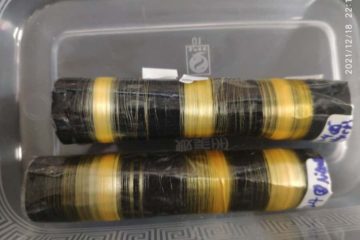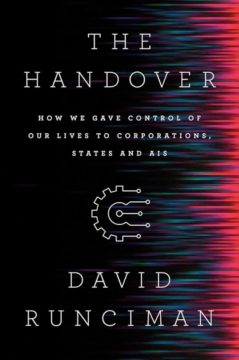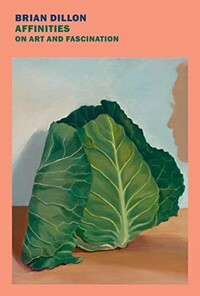Morgan Meis at Slant Books:
 I always thought that the song Troy by Sinéad O’Connor was a song about romantic love. But she explained, some years ago, that the song is really about her mother. Sinéad did not like her mother, who died in a car crash when Sinéad was eighteen and who she described as extremely physically and mentally abusive. I’m going to continue to refer to Sinéad O’Connor as simply Sinéad, by the way, since I feel that intimately about her and since she will always be Sinéad to me.
I always thought that the song Troy by Sinéad O’Connor was a song about romantic love. But she explained, some years ago, that the song is really about her mother. Sinéad did not like her mother, who died in a car crash when Sinéad was eighteen and who she described as extremely physically and mentally abusive. I’m going to continue to refer to Sinéad O’Connor as simply Sinéad, by the way, since I feel that intimately about her and since she will always be Sinéad to me.
As most people know, Sinéad died this past July. I’m assuming that this was suicide, though I guess this has not been confirmed. She had certainly attempted suicide many times and was never in anything that could be described as good mental health. I don’t know what to say about any of this or about what the song Troy was actually trying to communicate, in her mind.
I simply know that this extremely complex person who was often in a high degree of pain and distress created some extremely beautiful and powerful music.
More here.

 Spider silk has been eyed as a greener alternative to synthetic fibres, which are derived from fossil fuels and leach harmful microplastics into the environment. Farming silk from spiders themselves is difficult, however, because they
Spider silk has been eyed as a greener alternative to synthetic fibres, which are derived from fossil fuels and leach harmful microplastics into the environment. Farming silk from spiders themselves is difficult, however, because they  AI’s capacity for agency is an urgent ethical matter because for every agent there is a patient. For every actor, there is a person or thing being acted upon. The fundamental question of politics, which deftly distinguishes ruler and ruled, is “Who, whom?,” as Trotsky paraphrased Lenin. C. S. Lewis (without quite meaning to) became an unlikely respondent to this question. In The Abolition of Man, he wrote that “what we call Man’s power over nature turns out to be a power exercised by some men over other men with nature as its instrument.” His answer works well for our context. On the individual level, technology often serves as an extension of the self. The automobile aids motion, while the cloud computer enhances memory. Yet on the social level, such technologies inevitably introduce new hierarchies and restraints. The small-town shopkeeper is run out of business by the highway bypass and the chain-store complex; reliance on Google’s products turns the user’s attention itself into a profitable product. AI opens whole new vistas for the latter kind of power-over-others, which has aptly been called “surveillance capitalism.”
AI’s capacity for agency is an urgent ethical matter because for every agent there is a patient. For every actor, there is a person or thing being acted upon. The fundamental question of politics, which deftly distinguishes ruler and ruled, is “Who, whom?,” as Trotsky paraphrased Lenin. C. S. Lewis (without quite meaning to) became an unlikely respondent to this question. In The Abolition of Man, he wrote that “what we call Man’s power over nature turns out to be a power exercised by some men over other men with nature as its instrument.” His answer works well for our context. On the individual level, technology often serves as an extension of the self. The automobile aids motion, while the cloud computer enhances memory. Yet on the social level, such technologies inevitably introduce new hierarchies and restraints. The small-town shopkeeper is run out of business by the highway bypass and the chain-store complex; reliance on Google’s products turns the user’s attention itself into a profitable product. AI opens whole new vistas for the latter kind of power-over-others, which has aptly been called “surveillance capitalism.” I
I None of the United Nations’ 17 Sustainable Development Goals (SDGs), outlined in 2015, will be met by the self-imposed 2030 deadline. Governments and leaders are better at making promises than at keeping them, scientists have told Nature. However, there are signs that the SDG agenda is having an impact, they say.
None of the United Nations’ 17 Sustainable Development Goals (SDGs), outlined in 2015, will be met by the self-imposed 2030 deadline. Governments and leaders are better at making promises than at keeping them, scientists have told Nature. However, there are signs that the SDG agenda is having an impact, they say. Some three millennia ago, a blind bard whose name in ancient Greek means “hostage” is said to have composed two masterpieces of oral poetry that still speak to us. The Iliad’s subject is death, and the Odyssey’s is survival. Both plumb the male psyche and women’s enthrallment to its bravado. “Tell the old story for our modern times,” Homer entreats his muse, in the Odyssey’s first stanza. The translator Emily Wilson took him at his word. Her radically plainspoken
Some three millennia ago, a blind bard whose name in ancient Greek means “hostage” is said to have composed two masterpieces of oral poetry that still speak to us. The Iliad’s subject is death, and the Odyssey’s is survival. Both plumb the male psyche and women’s enthrallment to its bravado. “Tell the old story for our modern times,” Homer entreats his muse, in the Odyssey’s first stanza. The translator Emily Wilson took him at his word. Her radically plainspoken  We do not typically think in our everyday interactions with them of states and corporations as vast, powerful, long-lived, non-human ‘intelligences’. But, as Runciman rightly reminds us, the premier theorist of the modern state, Thomas Hobbes, explicitly conceived of it in such terms. A long intellectual tradition, likewise, has emphasised that states and corporations, organised alike through bureaucratic forms that restrict the personal spontaneity of their human components via techniques of abstraction and routinisation, possess peculiar modes of ‘thinking’ that are not quite comparable to the way individual people think. Theorists like Emile Durkheim, Max Weber and Michel Foucault registered, with different degrees of admiration and horror, their recognition that the modern era had witnessed the almost total subsuming of human life, at least in the developed world, into forms imposed on it by these artificial intelligences.
We do not typically think in our everyday interactions with them of states and corporations as vast, powerful, long-lived, non-human ‘intelligences’. But, as Runciman rightly reminds us, the premier theorist of the modern state, Thomas Hobbes, explicitly conceived of it in such terms. A long intellectual tradition, likewise, has emphasised that states and corporations, organised alike through bureaucratic forms that restrict the personal spontaneity of their human components via techniques of abstraction and routinisation, possess peculiar modes of ‘thinking’ that are not quite comparable to the way individual people think. Theorists like Emile Durkheim, Max Weber and Michel Foucault registered, with different degrees of admiration and horror, their recognition that the modern era had witnessed the almost total subsuming of human life, at least in the developed world, into forms imposed on it by these artificial intelligences. There was a period in my twenties when I found it important to adopt the attitudes and dispositions of a cinephile. I drove to Tower Records on Broadway in Downtown Sacramento, fifteen miles both ways, to rent VHS tapes of the works of F. W. Murnau, Satyajit Ray, Carl Theodor Dreyer. I considered it a great virtue to sit through hours of Stan Brakhage’s abstractions. I was, in truth, deeply bored by Yasujiro Ozu’s quiet people with their little lives, but I took the willingness to endure this boredom likewise as a mark of a special species of virtue — the cinephile virtue. (I have rewatched Ozu in more recent years and have found his work utterly compelling.) I strained to read the Cahiers du Cinéma, barely understanding a word, but loving the adoration those French intellos were willing to shower upon, say, Clint Eastwood, or, in the back catalogue of issues, the love that poured forth from François Truffaut and Jean-Pierre Melville for the most common run of American policiers. It seemed to me that cinephilia, in the particular form it took in the twentieth century, was the most thriving and generous bastion of true humanism, where it was generally understood to be something best expressed in sensibility and attention, rather than in any particular concrete message. No one, I still think, embodied this humanism more fully than Jean Renoir.
There was a period in my twenties when I found it important to adopt the attitudes and dispositions of a cinephile. I drove to Tower Records on Broadway in Downtown Sacramento, fifteen miles both ways, to rent VHS tapes of the works of F. W. Murnau, Satyajit Ray, Carl Theodor Dreyer. I considered it a great virtue to sit through hours of Stan Brakhage’s abstractions. I was, in truth, deeply bored by Yasujiro Ozu’s quiet people with their little lives, but I took the willingness to endure this boredom likewise as a mark of a special species of virtue — the cinephile virtue. (I have rewatched Ozu in more recent years and have found his work utterly compelling.) I strained to read the Cahiers du Cinéma, barely understanding a word, but loving the adoration those French intellos were willing to shower upon, say, Clint Eastwood, or, in the back catalogue of issues, the love that poured forth from François Truffaut and Jean-Pierre Melville for the most common run of American policiers. It seemed to me that cinephilia, in the particular form it took in the twentieth century, was the most thriving and generous bastion of true humanism, where it was generally understood to be something best expressed in sensibility and attention, rather than in any particular concrete message. No one, I still think, embodied this humanism more fully than Jean Renoir. Several countries, including the US, Canada and the UK, have approved new covid-19 booster vaccines, targeting a more recent variant than the boosters used last year. Here is what you need to know.
Several countries, including the US, Canada and the UK, have approved new covid-19 booster vaccines, targeting a more recent variant than the boosters used last year. Here is what you need to know. It is no longer just our leaders we must fear, but a whole section of the population. The banality of evil, the normalisation of evil is now manifest in our streets, in our classrooms, in very many public spaces. The mainstream press, the hundreds of 24-hour news channels have been harnessed to the cause of fascist majoritarianism. India’s Constitution has been effectively set aside. The Indian Penal Code is being rewritten. If the current regime wins a majority in 2024, it is very likely that we will see a new Constitution.
It is no longer just our leaders we must fear, but a whole section of the population. The banality of evil, the normalisation of evil is now manifest in our streets, in our classrooms, in very many public spaces. The mainstream press, the hundreds of 24-hour news channels have been harnessed to the cause of fascist majoritarianism. India’s Constitution has been effectively set aside. The Indian Penal Code is being rewritten. If the current regime wins a majority in 2024, it is very likely that we will see a new Constitution. In “Science Fictions,” the Art Institute of Chicago presents more than 60 of Varo’s paintings and drawings, all made between 1955 and 1963, the year she died of a heart attack at 54. Long revered in Latin America, Varo has entered the canon more slowly in the United States. This is her first exhibition here in more than two decades. Like other female Surrealists, especially her friend and fellow émigré Leonora Carrington, who shares a similar animism and mystical iconography, Varo’s achievements are still being measured. This show makes an irrefutable case for her technical mastery while also affirming her as a first-rate fabulist whose disparate influences—chivalric romance, medieval architecture, tarot, psychology, astronomy, and much more—cohere into a visionary whole.
In “Science Fictions,” the Art Institute of Chicago presents more than 60 of Varo’s paintings and drawings, all made between 1955 and 1963, the year she died of a heart attack at 54. Long revered in Latin America, Varo has entered the canon more slowly in the United States. This is her first exhibition here in more than two decades. Like other female Surrealists, especially her friend and fellow émigré Leonora Carrington, who shares a similar animism and mystical iconography, Varo’s achievements are still being measured. This show makes an irrefutable case for her technical mastery while also affirming her as a first-rate fabulist whose disparate influences—chivalric romance, medieval architecture, tarot, psychology, astronomy, and much more—cohere into a visionary whole. “I found myself frequently using the word affinity,” he writes, “and wondered what I meant by it.” Taken together, the book’s ten “essays on affinity” can be described as a kind of manifesto for an anti-critical criticism. Dillon subjects the word to a familiar array of para-academic procedures. He considers its etymology; its relationship to cognate concepts like fascination, appreciation, sympathy, attraction, the crush; its lowly position in the hierarchy of accepted aesthetic categories; the history of its usage in the discourses of literature, science, and theory; its metaphorical relations to images of, for example, fog and light; its unassimilability to the norms and procedures of scholarship; its noncognitive status as an affective atmosphere or mood. Much like Dillon himself, who supplements his freelance work by teaching creative writing at Queen Mary University of London, “affinity” is perched on a wire between the technical jargon of the English department, where interpretations are advanced and arguments in support of them are defended, and the demotic vocabulary of the social cataloguing site, where an algorithm sorts objects according to their similarities, and users are content to simply “like” them. “When I wrote affinity in a piece of critical prose,” Dillon muses, “perhaps I was trying to point elsewhere, to a realm of the unthought, [the] unthinkable, something unkillable by attitudes or arguments.”
“I found myself frequently using the word affinity,” he writes, “and wondered what I meant by it.” Taken together, the book’s ten “essays on affinity” can be described as a kind of manifesto for an anti-critical criticism. Dillon subjects the word to a familiar array of para-academic procedures. He considers its etymology; its relationship to cognate concepts like fascination, appreciation, sympathy, attraction, the crush; its lowly position in the hierarchy of accepted aesthetic categories; the history of its usage in the discourses of literature, science, and theory; its metaphorical relations to images of, for example, fog and light; its unassimilability to the norms and procedures of scholarship; its noncognitive status as an affective atmosphere or mood. Much like Dillon himself, who supplements his freelance work by teaching creative writing at Queen Mary University of London, “affinity” is perched on a wire between the technical jargon of the English department, where interpretations are advanced and arguments in support of them are defended, and the demotic vocabulary of the social cataloguing site, where an algorithm sorts objects according to their similarities, and users are content to simply “like” them. “When I wrote affinity in a piece of critical prose,” Dillon muses, “perhaps I was trying to point elsewhere, to a realm of the unthought, [the] unthinkable, something unkillable by attitudes or arguments.” For decades, New Hampshire has generated brisk and gratifying drama with its first-in-the-nation presidential primary. The Granite State momentously destroyed a presidency in 1968, when the Minnesota senator Eugene McCarthy ran against President Lyndon Johnson on an antiwar platform. Johnson had been so confident of his renomination that he had not initially deigned to enter the New Hampshire race, while other leading Democratic politicians, including Robert F. Kennedy Sr., remained aloof, fearful of challenging the president despite his mounting unpopularity during the Vietnam War. Thus, McCarthy was the only major Democrat on the ballot. When the fervor behind his campaign revealed the senator’s surging support, Johnson hurriedly mobilized a write-in effort, which duly yielded him a 50 percent share against McCarthy’s 42—a poor enough showing for a sitting president to embolden Kennedy to enter the race four days later, and for Johnson to announce his retirement from the race two weeks after that. For Joe Biden, the New Hampshire primary’s history is entirely hateful.
For decades, New Hampshire has generated brisk and gratifying drama with its first-in-the-nation presidential primary. The Granite State momentously destroyed a presidency in 1968, when the Minnesota senator Eugene McCarthy ran against President Lyndon Johnson on an antiwar platform. Johnson had been so confident of his renomination that he had not initially deigned to enter the New Hampshire race, while other leading Democratic politicians, including Robert F. Kennedy Sr., remained aloof, fearful of challenging the president despite his mounting unpopularity during the Vietnam War. Thus, McCarthy was the only major Democrat on the ballot. When the fervor behind his campaign revealed the senator’s surging support, Johnson hurriedly mobilized a write-in effort, which duly yielded him a 50 percent share against McCarthy’s 42—a poor enough showing for a sitting president to embolden Kennedy to enter the race four days later, and for Johnson to announce his retirement from the race two weeks after that. For Joe Biden, the New Hampshire primary’s history is entirely hateful. N
N